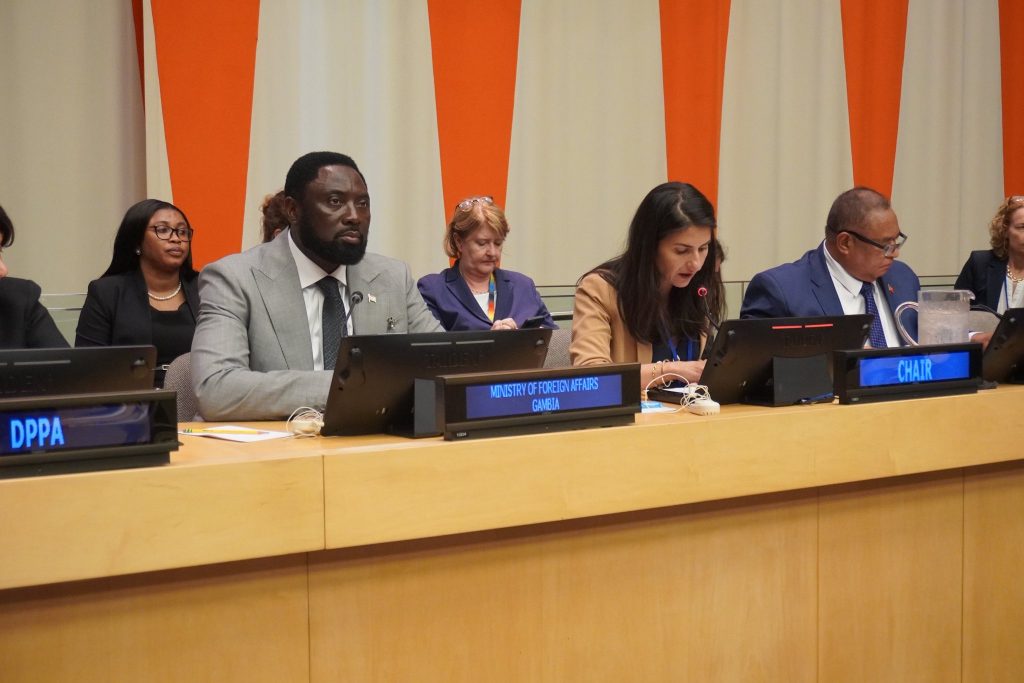The Gambia’s transformative peace-building efforts took center stage at the United Nations headquarters as Foreign Minister Dr. Mamadou Tangara delivered a keynote address during the UN Peace-building Commission’s annual session commemorating its 20th anniversary.
Invited in recognition of The Gambia’s peaceful transition and sustained progress, Dr. Tangara joined an ambassadorial-level panel titled “Lessons Learned from Peace-building Success Stories”, sharing insights from the country’s nationally-driven efforts following two decades of authoritarian rule.
Hosted in the ECOSOC Chamber on 19th June 2025, the high-level session brought together UN member states, senior diplomats, and global peace-building actors to reflect on best practices for countries emerging from conflict. This year’s theme carried added significance amid a broader review of UN peace-building architecture and increasing concerns over fragility and democratic backsliding.
In her official invitation, PBC Chair and German UN Ambassador Antje Leendertse lauded The Gambia’s experience as “invaluable,” underscoring the importance of homegrown strategies. “Countries that have navigated the challenging path from conflict to peace are able to offer crucial insights,” she noted.
During his address, Minister Tangara highlighted the pivotal role of national ownership, inclusive dialogue, and institutional reform in The Gambia’s transition. He emphasized milestones such as the establishment of the Truth, Reconciliation and Reparations Commission (TRRC), security sector and judicial reforms, and the creation of the National Human Rights Commission. These efforts, he stressed, were aimed at ensuring justice, strengthening the rule of law, and restoring public trust in governance.
“Peace cannot be imported,” Tangara said. “It must be cultivated from within nurtured by the people, for the people.”
He commended the UN Peace-building Commission for its timely and decisive support during The Gambia’s critical political transition following the 2017 impasse, acknowledging that coordinated multilateral assistance was instrumental in facilitating inclusive governance, strengthening public institutions, and advancing transitional justice.
FM Tangara also announced recent progress in justice and accountability, including the establishment of the Special Accountability Mechanism and the passage of the Victims Reparation Act. He confirmed The Gambia’s intent to establish a hybrid court, with ECOWAS support, to adjudicate crimes committed between 1994 and 2017. These steps, he said, reflect the country’s commitment to the principle of “Never Again” and to building a durable culture of human rights and accountability.
As one of the few countries in recent years to achieve a peaceful and democratic transition, The Gambia’s story served as both inspiration and blueprint during the session reinforcing the importance of national resilience, international solidarity, and sustained engagement in the pursuit of peace.
Established in 2005, the UN Peace-building Commission supports conflict-affected countries through international cooperation, policy dialogue, and resource mobilization.

